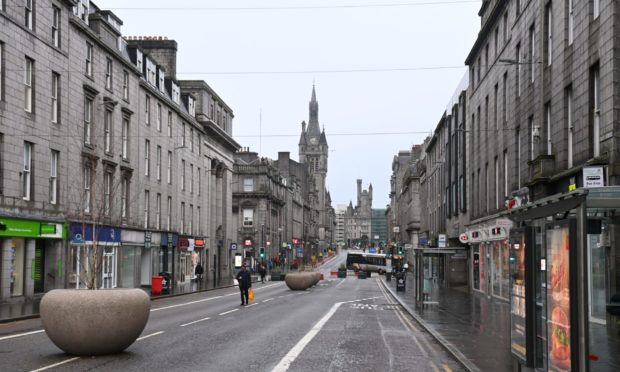Scotland needs a business rates overhaul with extra help for smaller high street traders, the Lib Dems say.
Scottish party leader Willie Rennie is demanding a fairer system to stop town centre companies losing out to online competitors.
The demand comes as retailers of all sizes continue to count the cost of the covid pandemic and lockdown.
The economic damage has shuttered independent shops all over the country while supermarkets carry on trading.
Big department stores are not safe, however, with John Lewis shuttering its Aberdeen store, and other familiar shop fronts disappearing from towns and cities.
‘Put recovery first’
Mr Rennie says he wants to change the charges to focus on the value of land, making it payable by the owner of the land rather than the business.
He claims this will support smaller businesses and lead to reduced bills for properties in and around high streets.
But it would increase the burden on developers who are “land banking” sites, hoping their holdings will then increase in value while not developing anything.
Mr Rennie, visiting shops in Edinburgh on Thursday, said: “As we put recovery first, the Scottish Liberal Democrats will provide a shot in the arm to small businesses in and around the high street across Scotland. That’s why we want to give a tax break for high street shops to help them survive and compete with online retailers.
“The world has changed since business rates were introduced, and it’s time for our tax system to catch up. We believe that high streets are an important part of our communities. They provide meeting points and social opportunities as well as access to goods and services for those who cannot, or choose not, to shop online.”
